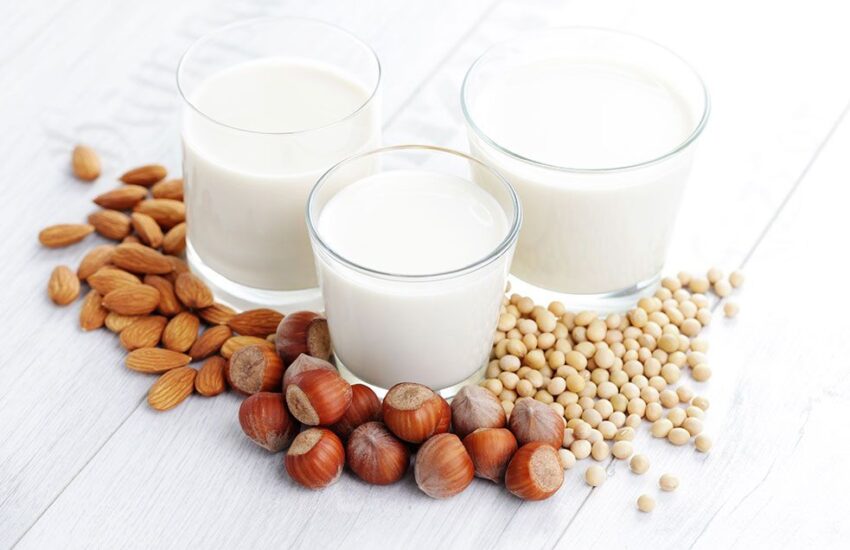We get into issues like what is pea milk, how it is created, and the nutritional value of pea milk in this section.
Non-dairy milk alternatives have progressively expanding in popularity over the last several years, and at this very second, an increasing variety of choices are being accessible in stores all around the country. Alongside various kinds of milk that are already available on the market, such as nut milks, oat milks, soymilks, rice milks, and even potato milks, this milk a recently introduced alternative. It’s possible that you’ve never heard of pea milk before.
Pea milk has rapidly gaining popularity in the United States market among customers who are interested in experimenting with novel alternatives to traditional dairy products. These consumers include vegans, vegetarians, and those looking to reduce their use of animal products. Since it does not include nuts, soy, lactose, gluten, or any of the other common food allergens. This milk may safely consumed by anyone who are allergic to any of these items.
On the other side, those who aren’t familiar with the new product can have some questions about it. Such as “just what is pea milk?” And does it contribute in any way to a healthy diet? In this part of the article, we go into the scientific literature to look for solutions to these questions as well as other problems.
What Is Pea Milk, and How Is Pea Milk Made?
Pea milk made from yellow field peas, not green field peas; green field peas are processed into flour. Yellow field peas are used to create pea flour. The process of making pea milk involves combining pure protein. Which has extracted from wheat and then separated from its starch and fiber components. With water and various additional components, which may include sunflower oil and vitamins such as B12. The first step in the preparation of several alternatives to dairy milk is to soak the components. On the other hand, the production of this milk entails combining isolated protein with water and a number of other components.
Where does this leave us? An alternative to cow’s milk that has a taste, consistency, and appearance that are equivalent to cow’s milk in all of these respects. Pea milk that has not sweetened can consumed on its own. Or it can utilized in the same manner that one would utilize any other type of milk or nondairy milk in the preparation of smoothies, cereal, soups, and baked goods that are both sweet and savory. Pea milk that has not sweetened can found at your local natural foods store.
Is Pea Milk Healthy?
The following is a rundown of the various components of Ripple’s unsweetened pea milk that make up one cup’s worth of the company’s standard serving size:
- 80 calories
- 4.5g total fat
- <1g carbohydrates
- 0g sugar
- 8g protein
- 125mg sodium
- 440mg calcium
- 405mg potassium
Pea milk typically provides 150 percent more calcium than cow’s milk, despite the fact that the formulations might differ. In addition, when compared to other popular non-dairy milks like almond milk and oat milk, it contains a much higher amount of protein, which may assist in the maintenance of strong bones and help you feel satiated for a longer length of time.
Pea milk is a wonderful source of a variety of critical minerals, such as potassium, vitamin A, and vitamin D. All of these minerals known to support cardiovascular health, healthy vision. And the absorption of nutrients, and this milk is an excellent source of all of these minerals.
Because a serving contains less than 1 gram of carbohydrates, less than 1 gram of saturated fat, and a low sodium content. Pea milk is an excellent choice for individuals who are following a low-carb or diabetic-friendly eating pattern. It is also an excellent choice for individuals who are looking to reduce their sodium intake. In addition to this, pea milk is a beverage with a reduced amount of salt.
It is also a choice that is kind to the environment because not only are yellow field peas inexpensive, but they are also easy to cultivate. Furthermore, the production of the milk from yellow field peas requires significantly less water and other resources. When compared to the production of milk from other dairy and nondairy alternatives.
The Bottom Line
Is it safe to consume milk that has prepared from peas. Yes, those in search of a dairy-free alternative that is strong in protein. And is suitable for those who suffer from food allergies are able to include it into a healthy eating pattern. In addition to having a higher nutritional density than its competitors. It also has a less total impact on the environment than its competitors. The main problem is that pea milk is not widely available in stores. But the Ripple finder should be able to aid you in locating the nearest product of that specific brand.
Danielle DeAngelis Reviewed by Dietitian Jessica Ball from Geometry Dash, M.S., RD
